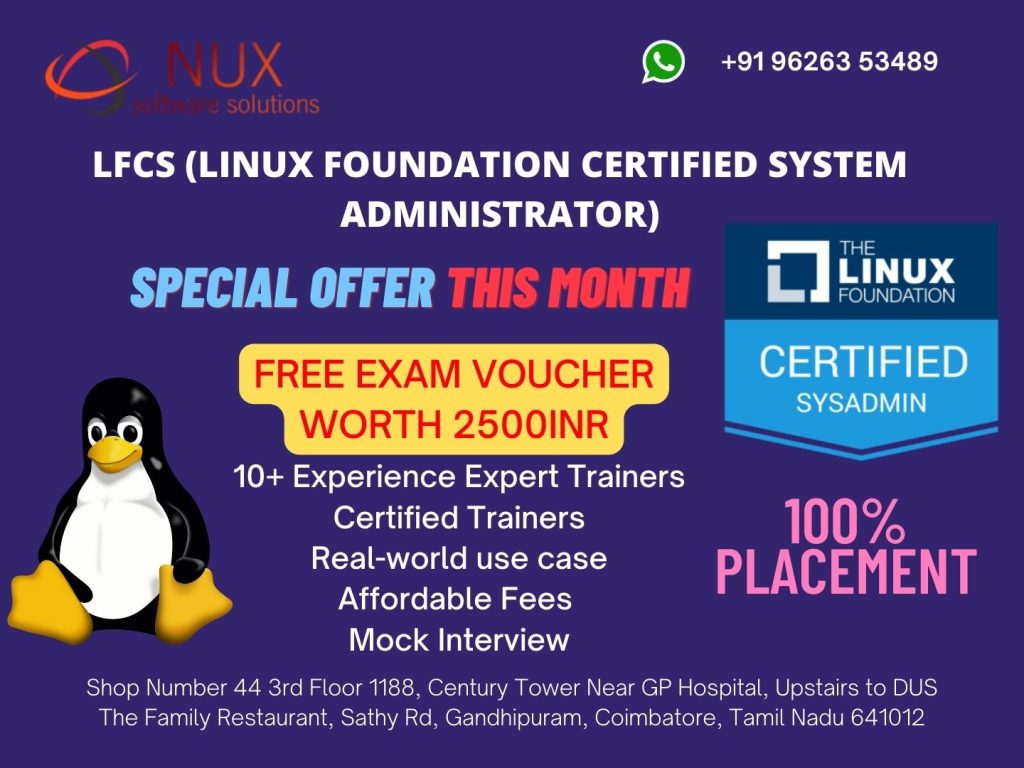Linux System Administration I

Step into the World of Linux with Hands-On System Administration Skills
The Linux System Administration I course is designed for IT professionals, aspiring system administrators, and students who are new to Linux and want to master the core concepts of managing Linux systems. This foundational program builds a strong technical base in Linux administration, enabling learners to configure, maintain, and troubleshoot Linux-based systems in real-world environments.
Whether you’re aiming for a Linux certification, looking to transition into system administration, or planning to enhance your DevOps or cloud computing skills, this course is the perfect starting point.
Why Choose This Course?
-
Beginner-Friendly Curriculum: No prior Linux experience needed
-
Real-Time Lab Access: Get hands-on practice with 24/7 server access
-
Certified Trainers: Learn from industry professionals with real-world experience
-
Interactive Learning: Blend of theory, demos, and practical assignments
-
Career Guidance: Roadmap to RHCSA, RHCE, and beyond
Ideal for:
-
Beginners to Linux operating systems
-
Freshers and IT graduates
-
System administrators seeking Linux skills
-
Support engineers and DevOps beginners
-
Professionals preparing for Red Hat or Linux+ certifications
Career Scope:
By completing this course, you can confidently apply for roles such as:
-
Linux System Administrator
-
Technical Support Engineer
-
Infrastructure Support
-
DevOps Intern
-
IT Helpdesk Executive
Mastering Linux is your first step toward a career in cloud computing, cybersecurity, DevOps, and beyond. Begin your Linux journey with the best training support in Coimbatore and build a solid foundation in open-source system administration.



